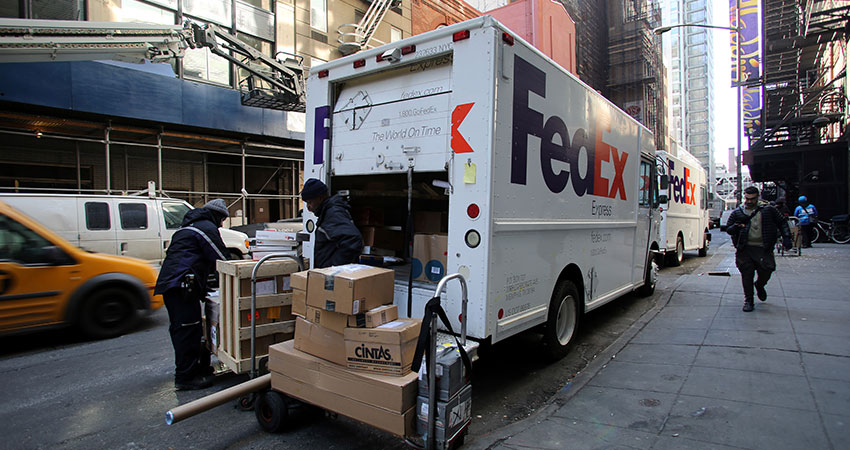FedEx announced a new round of rate increases starting June 21, including bumps in additional handling, peak surcharge and residential delivery charges, leaving beleaguered ecommerce shippers to wonder where it will end.
The carrier is also leaving in place a peak oversized charge of $30 per package, which went into effect on Jan. 18, affecting domestic Express and Ground and international Ground services.
“FedEx has kept commerce moving and delivered critical shipments throughout the COVID-19 pandemic,” the company said in explaining the increases. “The impact of the virus continues to generate elevated volumes, high demand for capacity and increased operating costs across our network.”
Analysts and shippers have griped that these charges are showing up as FedEx reports stellar financial results to Wall Street, calling them opportunistic.
The residential delivery charge, increasing from 30 cents per package to 60 cents per package, affects shippers who tendering an average of more than 30,000 packages between FedEx Express and FedEx Ground (including Ground Economy) between Jan. 4 and Jan. 31.
This charge will affect domestic Express and Ground services, excluding Ground Economy and FedEx One Rate.
The additional handling surcharge is increasing from $3 to $3.50 per package, affecting domestic Express and Ground and international Ground services, while the peak surcharge – affecting Ground Economy deliveries only – is going from 75 cents to $1 per package.
Matthew Hertz, a co-founder at supply chain and logistics consultancy Second Marathon, said the definition of a monopoly – or in this case duopoly with UPS – is “when consumers or shippers lack pricing control.”
“That’s what we have here,” Hertz said. “Things won’t improve for shippers until more competition enters via regionals, same-day couriers and other new entrants like Amazon.”
Tim Geiken, principal at Parcel and LTL consultancy Platinum Circle Partners, said UPS has been “the bully” in terms of rates hikes since COVID allowed them to change the game a year ago — including Q4 double-digit increases to major shippers without warning — but FedEx is “picking up its game.”
“Mostly (FedEx is) citing labor as the reason for the cost pressure, with wages increasing due to the government stimulus and unemployment,” Geiken said. “But that’s short term. People are going back to work, and state by state they’re starting to review unemployment benefits, so they’re going to solve for the equation that state plus federal benefits equals $32,000 to sit at home. FedEx is using it as an excuse for now to take price.”
Geiken said retailers can’t continue to eat an average shipping charge of $10 from the majors if their average order value is $70, for example, “so something has to give.”
“Regionals are picking up their game all over the country, but shippers need to be wary of new entrants who don’t have their own final mile component as well,” he said.

